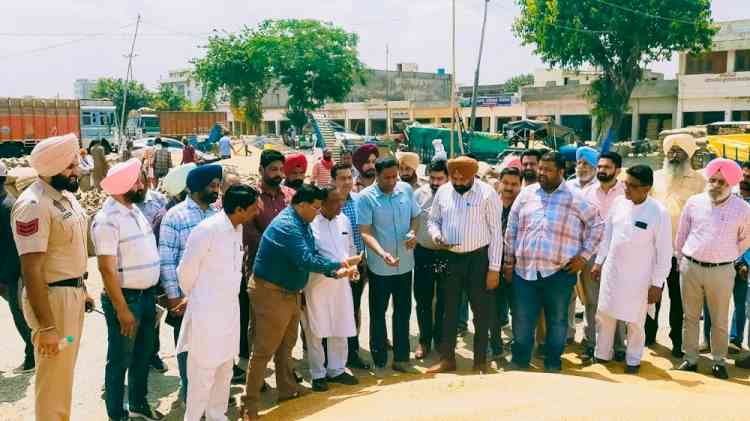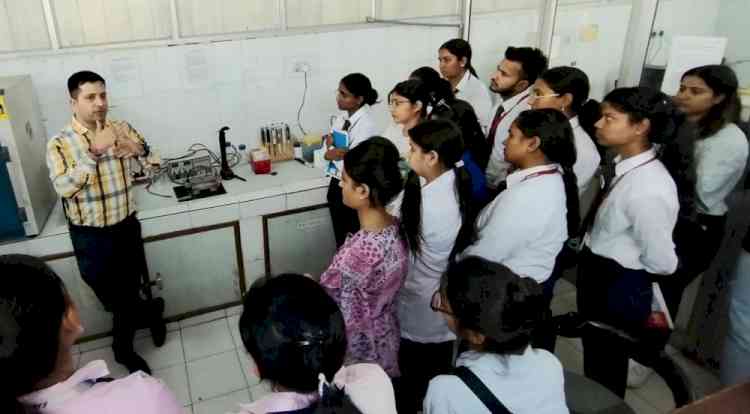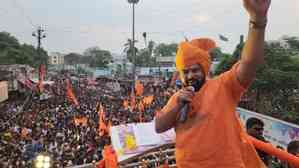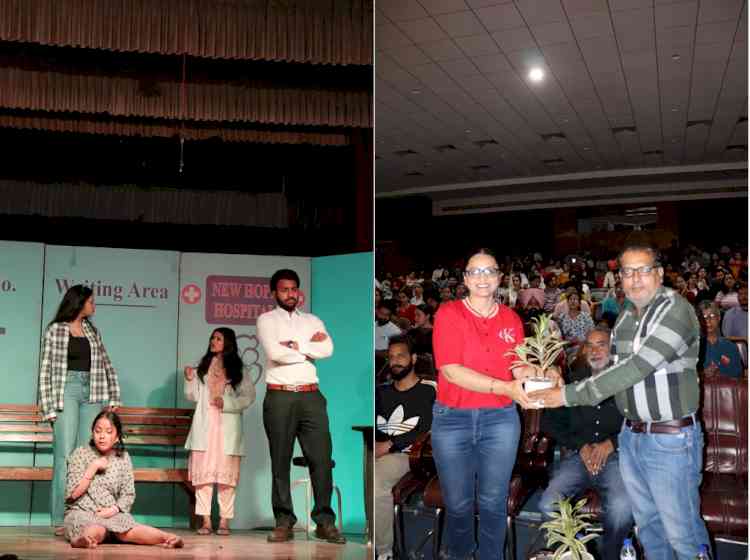Neonatology Team at DMCH saves a rare case of Hydrops fetalis with Rh disease
Author(s): City Air NewsA related photograph. Ludhiana, July 30, 2014: Neonatology team (Pediatrics) in DMCH is proud to save a rare case of hydrops fetalis (a lethal condition which occurs due to blood group incompatibility among husband...


A related photograph.
Ludhiana, July 30, 2014: Neonatology team (Pediatrics) in DMCH is proud to save a rare case of hydrops fetalis (a lethal condition which occurs due to blood group incompatibility among husband and wife, and leads to death of fetus inside the womb). Neha from phillaur, Ludhiana was on 7th sky when she first held her tiny girl in her arms after 3 pregnancy losses due to this disease. Neha’s blood group was A negative and husband was A positive. She was pregnant three times, but her baby could not be saved as the baby had suffered from this fatal disease and all babies died during the pregnancy period.
In this pregnancy she got full check up done from her gynaecologist (Dr Ashima Taneja, Prof and Head, Department of Obstetrics and Gynaecology, DMCH) and she again developed the same problem. She was 29 weeks pregnant (7 months) when the radiologist did the ultrasound and told that fetus had again developed swelling and would not be able to save the baby. Dr Kamal Arora in Neonatal Division , Department of pediatrics at DMCH (DM Neonatology, AIIMS, New Delhi), was consulted and he, along with his neonatology team planned to deliver the baby immediately as the baby would not survive if the pregnancy was continued for even one more day. Dr Ashima Taneja did the cesarean section, and delivered a baby girl of 1100 gm. When the baby was delivered, she was swollen and could not breathe due to premature birth and fluid in lungs, so baby was given artificial breath with ventilator. The haemoglobin was only 4 gm/dl (as compared to normal of 17-18 gm/dl of a normal baby) at the time of birth, so it was decided that baby would be given blood by a technique called as exchange transfusion. This technique is of two types (partial and double) and in this case both techniques were used. Dr Rajesh(consultant in blood bank, DMCH), arranged O negative blood (rare blood group) immediately, for the baby and exchange transfusion was done twice. Echocardiography done by Dr Rohit Tandon, revealed that heart was not pumping well for this tiny neonate, so she was given inotropes (drugs which increase pumping of heart). She was continued on ventilation for 3 days and CPAP ventilation (non invasive) for 10 days.
On day 17 of life baby was well and handed over to the mother at a weight of 1.4 kg. The whole family is jubilious after getting the baby in their lap. Dr Ashima and Dr Kamal Arora have assured many parents with similar problem that babies with such problem do survive, if managed timely and appropriately. Managing Secretary, DMCH, Prem Kumar Gupta has expressed his pleasure on this achievement and assured of many new equipments to save such vulnerable newborns.

 cityairnews
cityairnews 
















